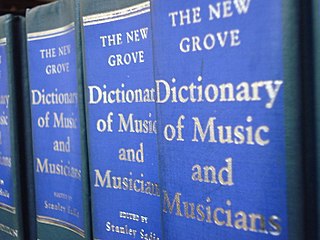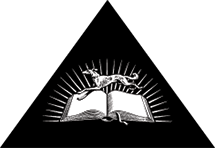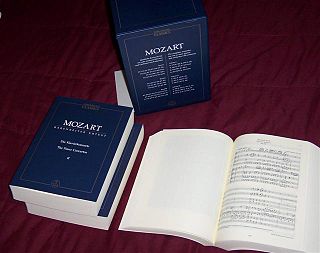
The Dewey Decimal Classification (DDC), colloquially known as the Dewey Decimal System, is a proprietary library classification system which allows new books to be added to a library in their appropriate location based on subject. It was first published in the United States by Melvil Dewey in 1876. Originally described in a 44-page pamphlet, it has been expanded to multiple volumes and revised through 23 major editions, the latest printed in 2011. It is also available in an abridged version suitable for smaller libraries. OCLC, a non-profit cooperative that serves libraries, currently maintains the system and licenses online access to WebDewey, a continuously updated version for catalogers.

Henry Purcell was an English composer of Baroque music.

The Oxford English Dictionary (OED) is the principal historical dictionary of the English language, published by Oxford University Press (OUP). It traces the historical development of the English language, providing a comprehensive resource to scholars and academic researchers, as well as describing usage in its many variations throughout the world.

The New Grove Dictionary of Music and Musicians is an encyclopedic dictionary of music and musicians. Along with the German-language Die Musik in Geschichte und Gegenwart, it is one of the largest reference works on the history and theory of music. Earlier editions were published under the titles A Dictionary of Music and Musicians, and Grove's Dictionary of Music and Musicians; the work has gone through several editions since the 19th century and is widely used. In recent years it has been made available as an electronic resource called Grove Music Online, which is now an important part of Oxford Music Online.

Everyman's Library is a series of reprints of classic literature, primarily from the Western canon. It is currently published in hardback by Random House. It was originally an imprint of J. M. Dent, who continue to publish Everyman Paperbacks.

The Hakluyt Society is a text publication society, founded in 1846 and based in London, England, which publishes scholarly editions of primary records of historic voyages, travels and other geographical material. In addition to its publishing role, the Society organises and participates in meetings, symposia and conferences relating to the history of geographical exploration and cultural encounter. It is a registered charity and a non-profitmaking institution administered by a voluntary team of council members and officers. Membership is open to all with an interest in its aims.

The German Bach-Gesellschaft was a society formed in 1850 for the express purpose of publishing the complete works of Johann Sebastian Bach without editorial additions. The collected works are known as the Bach-Gesellschaft-Ausgabe. On completion of the project, the Society dissolved itself.

The Neue Mozart-Ausgabe is the second complete works edition of the music of Wolfgang Amadeus Mozart. A longer and more formal title for the edition is Wolfgang Amadeus Mozart (1756–1791): Neue Ausgabe sämtlicher Werke [Wolfgang Amadeus Mozart (1756–1791): New Edition of the Complete Works].
The New Bach Edition (NBE), is the second complete edition of the music of Johann Sebastian Bach, published by Bärenreiter. The name is short for Johann Sebastian Bach (1685–1750): New Edition of the Complete Works. It is a historical-critical edition of Bach's complete works by the Johann Sebastian Bach Institute (Johann-Sebastian-Bach-Institut) in Göttingen and the Bach Archive (Bach-Archiv) in Leipzig,

The Chronicles and Memorials of Great Britain and Ireland during the Middle Ages, widely known as the Rolls Series, is a major collection of British and Irish historical materials and primary sources published as 99 works in 253 volumes between 1858 and 1911. Almost all the great medieval English chronicles were included: most existing editions, published by scholars of the 17th and 18th centuries, were considered to be unsatisfactory. The scope was also extended to include legendary, folklore and hagiographical materials, and archival records and legal tracts. The series was government-funded, and takes its unofficial name from the fact that its volumes were published "by the authority of Her Majesty's Treasury, under the direction of the Master of the Rolls", who was the official custodian of the records of the Court of Chancery and other courts, and nominal head of the Public Record Office.
Historical editions form part of a category of printed music, which generally consists of classical music and opera from a past repertory, where the term can apply to several different types of published music. However, it is principally applied to one of three types of music of this sort:
Sussex Archaeological Collections is an annual peer-reviewed academic journal covering archaeological topics. The journal is published by the Sussex Archaeological Society and was established in 1848.

Michael Burden, FAHA, is an Australian musicologist, working in the United Kingdom. He was elected a Corresponding Fellow of the Australian Academy of the Humanities in 2018.
The Arden Shakespeare is a long-running series of scholarly editions of the works of William Shakespeare. It presents fully edited modern-spelling editions of the plays and poems, with lengthy introductions and full commentaries. There have been three distinct series of The Arden Shakespeare over the past century, with the third series commencing in 1995 and concluding in January 2020. Arden was the maiden name of Shakespeare's mother, Mary, but the primary reference of the enterprise's title is to the Forest of Arden, in which Shakespeare's As You Like It is set.

John Alexander Fuller Maitland was an influential British music critic and scholar from the 1880s to the 1920s. He encouraged the rediscovery of English music of the 16th and 17th centuries, particularly Henry Purcell's music and English virginal music. He also propounded the notion of an English Musical Renaissance in the second half of the 19th century, particularly praising Charles Villiers Stanford and Hubert Parry.
The Library of the Fathers, more properly A library of fathers of the holy Catholic church: anterior to the division of the East and West, was a series of around 50 volumes of the Church Fathers, annotated in English translation, published 1838 to 1881 by John Henry Parker. Edited by Edward Bouverie Pusey and others including John Keble and John Henry Newman, this series of editions is closely associated with the origins of the Oxford Movement.
Denkmäler deutscher Tonkunst is a historical edition of music from Germany, covering the Baroque and Classical periods.
Come Ye Sons of Art, Z.323, also known as Ode for Queen Mary's Birthday, is a musical composition by Henry Purcell. It was written in 1694, and is one of a series of odes in honour of the birthday of Queen Mary II of England. The text of the ode is often attributed to Nahum Tate, who was poet laureate at the time.

"Thou knowest, Lord, the secrets of our hearts", Z. 58, designates two choral settings composed by Henry Purcell. The text is one of the Anglican funeral sentences from the Book of Common Prayer. Early versions began possibly in 1672 and were revised twice before 1680. Purcell composed his last version, in a different style, for the 1695 Music for the Funeral of Queen Mary, Z. 860.
The Musical Antiquarian Society was a British society established in 1840. It published, during seven years, 19 volumes of choral music from the 16th and 17th centuries.










